Business
Electricity company bars prepaid metre customers from recharging below N5,000.
Published
2 months agoon
By
Ekwutos Blog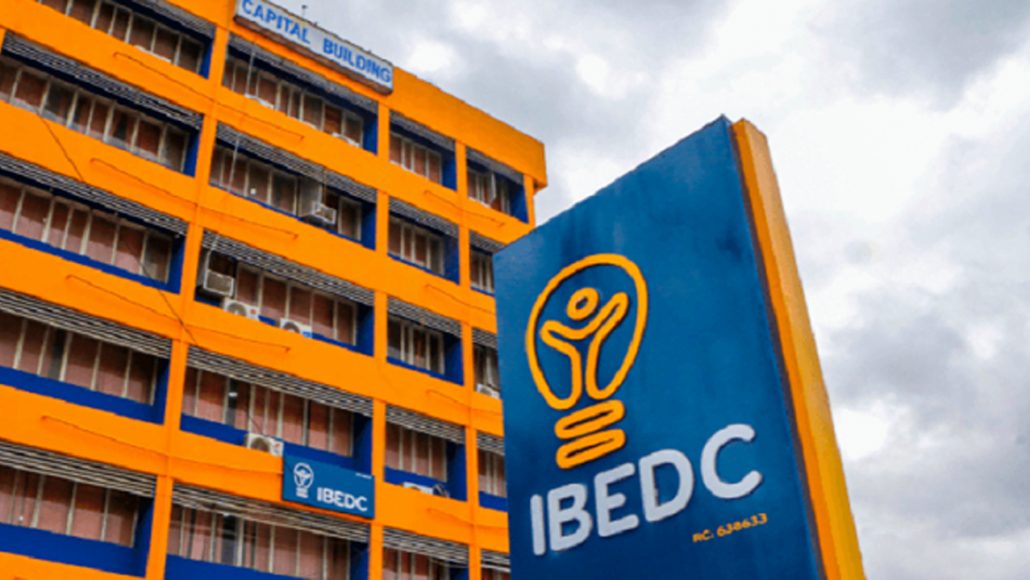
• Recharge Benchmark Policy Illegal, Says Expert
Some low-income earners in the country are currently living in darkness because of the new policy of the Ibadan Electricity Distribution Company (IBEDC) which disallowed prepaid customers from recharging below N5,000.
It was gathered that as a result of IBEDC new policy of N5000 benchmark, some Nigerians within the company’s coverage area compelled to recharge N5000 and above against their natural will while others have resorted to borrowing from families and friends to be able to enjoy electricity through the prepaid metering system.
The Guardian gathered that many others who were unable to meet the recharge benchmark have been left with no choice but to live in darkness.This is even as some of the consumers grapple to pay for high electricity bills under the Band A system imposed on them by the electricity firms.
In a public notice to its customers, the IBEDC stated that: “Please be informed of a recent update regarding IBEDC electricity recharge. Users on Band A are now required to make a minimum recharge purchase of N5,000. Users in other bands must make a minimum purchase of N2,000.
“Kindly note that this new payment structure is effective already and applies exclusively to IBEDC customers,” it stated. It was gathered that this policy was peculiar to IBEDC, as other discos contacted by The Guardian debunked such policy.
However, a lawyer, and an electricity expert, Anthony C. Nwajuigo, said the policy is illegal and a violation of the Electricity Act. He said: “This is illegal and not covered by law. The Multi Year Tariff Order (MYTO) pegged tariff for Band A at around N209.5 per kWh, hence the directive that flouts such MYTO regulation by National Electricity Regulatory Commission (NERC) is not only unconstitutional but illegal and in contravention of the Electricity Act and Federal Competition and Consumer Protection Act, 2018 (FCCPA)”.
Nwajuigo continued: “Stating that customers under band A cannot procure less than N5,000 is absurd. Why other customers cannot procure less than N5,000. It is totally illegal. And it is not just a breach of the NERC regulation on MYTO, it is also a breach of the provisions of the Federal Competition and Consumer Protection Act, 2018 (FCCPA).
“They don’t have such rights. Such a promulgation order made by IBEDC is unconstitutional. Not only is it unconstitutional, it’s illegal. It is a contravention of two extant acts that are regulating the electricity industry.
“Even in Lagos here, where I reside and where I practice, Eko Electricity Distribution Company (EKEDC) and Ikeja Electricity Distribution Company (IKEDC) donot do that. If you want to recharge N1,000, you are permitted to do it. If you want to recharge N500, you are permitted. The only thing is that you are giving the unit that you have recharged,” he stated.
A consumer in Ota area of Ogun State, Bolade Akindele, decried the situation, describing it as unnecessary exploitation of the masses who are still struggling to meet daily needs.
Akindele said: “This policy is inhuman. Even though we are on Band A, consumers should not be subjected to these conditions. Afterall, we are not consuming for commercial purposes. We are still struggling to cope with Band A tariff and now the company is coming with this new recharge policy. It is really not fair.
“We may begin to consider switching to solar energy. With these new developments in the power sector, I am afraid, many people will only be seeing the light but will not be able to afford to use it.”
You may like


Rhodes-Vivour, Sanwo-Olu clash over Lagos Health Insurance Scheme
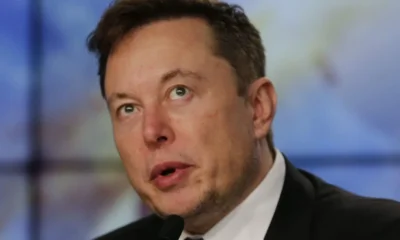

DOGE: Elon Musk terminates additional 80 wasteful contracts worth $203.6bn
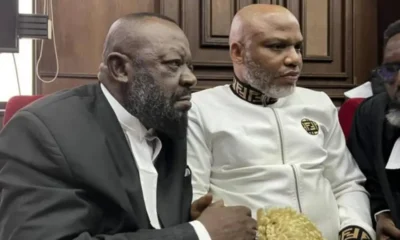

Nnamdi Kanu detained, prosecuted for making same remark as DSS DG, Ajayi – Ejimakor


Key witness, Cheryl Zondi breaks down as court acquits Nigerian pastor Timothy Omotoso on all charges of r3pe and human trafficking


Comparing Liverpool’s record with and without Trent Alexander-Arnold
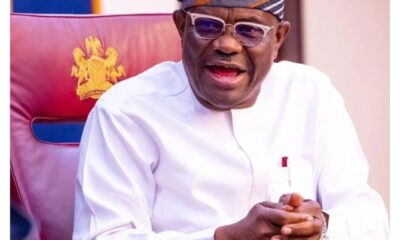

Wike approves first batch of 34 new resident doctors for FCTA hospitals
Business
NNPC: NAPE backs Tinubu on Kyari sack, Ojulari appointment
Published
6 hours agoon
April 2, 2025By
Ekwutos Blog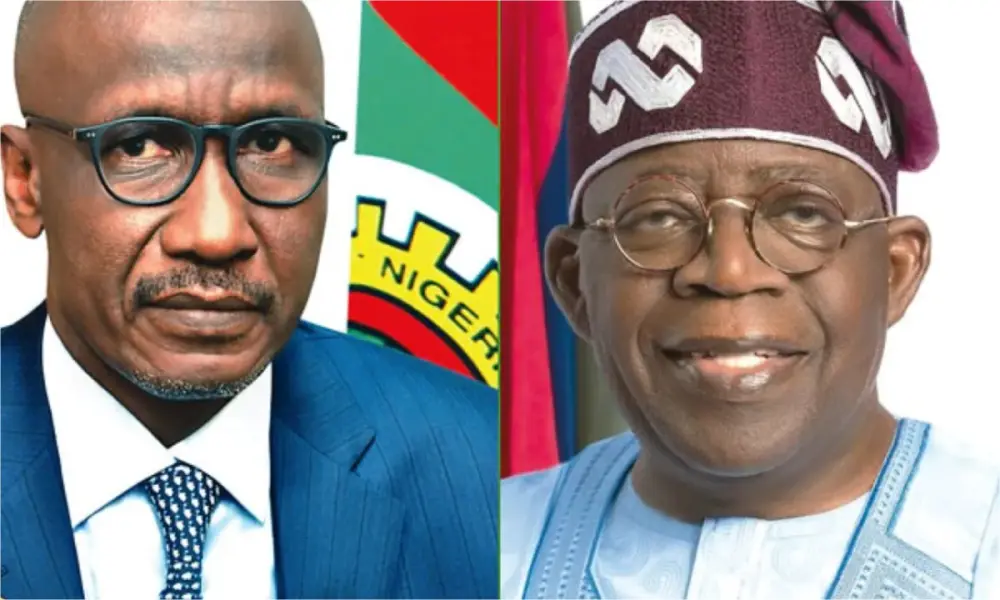
The Nigerian Association of Petroleum Explorationists has backed President Bola Ahmed Tinubu for the new Nigerian National Petroleum Company board appointment.
The president of NAPE, Johnbosco Uche, disclosed this in a statement on Wednesday.
Ekwutosblog reports that Tinubu removed the NNPCL chairman, Pius Akinyelure, and the GCEO, Mele Kyari, on Wednesday.
Reacting, NAPE noted that the appointment of Bayo Ojulari as group chief executive officer and Ahmadu Musa Kida as non-executive chairman of NNPCL is a bold step towards repositioning the oil and gas industry for greater efficiency, transparency, and profitability.
“The Nigerian Association of Petroleum Explorationists wishes to express its profound appreciation to President Bola Ahmed Tinubu for the recent appointment of a new board and management team for the Nigerian National Petroleum Company Limited.
“We are confident that the new team will bring the necessary expertise and experience to drive the oil and gas sector forward,” the association said.
Business
Why Aussie consumers could soon be paying DOUBLE for beef
Published
10 hours agoon
April 2, 2025By
Ekwutos Blog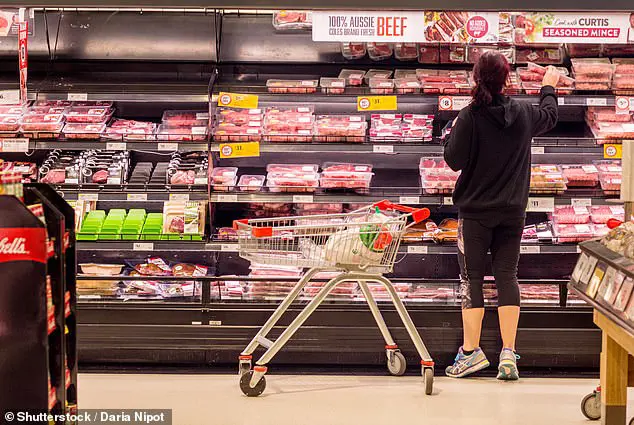
- Small-scale farmers warning of $56/kg rump steaks
- PODCAST: Trump round three, Musk’s breakup with DOGE – and former Denmark ambassador on the ‘smartest thing’ Greenland can do. Listen here
Australian consumers could end up paying more than $50 a kilo for steak at the supermarket as a result of Donald Trump‘s tariffs on agriculture exports, farmers say.
A kilogram of rump steak at Woolworths is now selling for $28.
But the Australian Food Sovereignty Alliance, representing 350 small-scale farmers, fears rump steak will end of costing Australian consumers $56 at the supermarket.
Spokeswoman Tammi Jonas, an organic beef cattle producer from Daylesford in Victoria, said the American tariffs on agricultural imports would see more countries buy Australian beef to avoid trading with the US.
‘We already know there’s high demand for Australian beef around the world and I think that’s just going to get higher,’ she told Daily Mail Australia.
‘In a global supply crunch like this, we could see rump steak climb past $50 per kilogram.
‘That’s not a family dinner – that’s a premium luxury.’
Dr Jonas said higher export prices would see less Australian meat sold to domestic consumers.
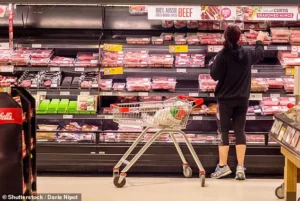
Australian consumers could end up paying more than $50 a kilo for steak as a result of Donald Trump ‘s tariffs on agriculture exports, farmers say (pictured is a Coles supermarket)
‘I would say there’s a strong likelihood of that, yes,’ she said.
‘And even if we still have enough beef sold within Australia, the prices are certain to go up.
‘Whenever you’re in those global markets, you roll with the volatility and if they can get a really high price overseas, they’re not going to charge less for domestic sales.’
But Angus Gidley-Baird, a senior analyst in animal protein with RaboResearch, said more expensive steak at the supermarket was unlikely, given the strong supply of Australian beef with the recent rainfall.
‘We produced record volumes of beef last year, I don’t see why there would be a shortage in the domestic market that would cause prices to rise,’ he told Daily Mail Australia.
‘The exports are effectively our markets that we sell the additional production into.’
Meat and Livestock Australia data showed the US was Australia’s biggest market for beef exports in 2024, putting it well ahead of Japan, South Korea and China.
Of the beef sent to the United States, 96 per cent of it was the leaner, grass fed variety that was either chilled or frozen.
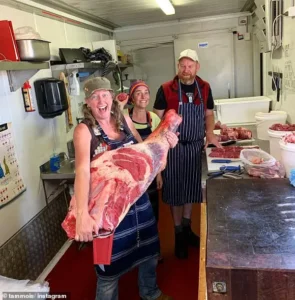
The Australian Food Sovereignty Alliance fears rump steak will end of costing Australian consumers $56 at the supermarket. Spokeswoman Tammi Jonas (left) said the American tariffs on agricultural imports would see more countries buy Australian beef to avoid trading with the US
The Americans have been in the grip of a drought, and most of their beef is fattier, grain-fed.
South American beef exporters Argentina and Brazil are also dealing with a lack of rainfall, which means demand for Australian beef would continue to be strong.
Mr Gidley-Baird said the Americans, who produced fattier, grain-fed beef, would still need the leaner, Australian grass-fed beef to make hamburger patties, regardless of import tariffs.
‘The US still continues to need imported product because they’re not producing as much themselves,’ he said.
‘They’ll still need Australian beef – the drought, it’s getting better in the US but they’ve liquidated their herd and production volumes are down.
‘What Australia sends to the US complements their production system over there in that it balances out the fatter product they’re producing for hamburger production.
‘They need the product and we’re one of the biggest suppliers of it – me being rational would still say that they would still buy it.’
At the margins, strong American demand for grass-fed beef had pushed up prices for Australian lean mince, now selling for $15.50 a kilo at Woolworths.
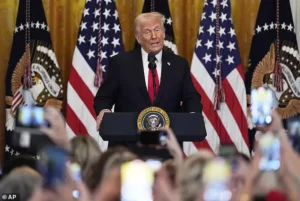
The Trump Administration’s tariffs of up to 25 per cent on agricultural imports are coming into affect on Thursday, along with tariffs on pharmaceutical products (President Donald Trump is pictured in the White House)
‘The US market has been very strong – it’s demanding a fair amount of product which is putting a bit of pressure on mince prices, lean product prices,’ Mr Gidley-Baird said.
The Australian Food Sovereignty Alliance sees mince prices more than doubling to $36 a kilo.
But Dr Jonas predicted possible tariffs of up to 25 per cent on Australian beef would see American demand plunge, despite the fact they are in drought with an undersupply of grass-fed beef.
‘I think with a 25 per cent tariff they won’t be able to afford it – Americans are in as big a cost-of-living crisis as Australians are and they can’t handle a 25 per cent tariff on top of the higher meat price of imported Australian beef,’ she said.
The Australian Food Sovereignty Alliance didn’t do specific economic modelling on Australian beef prices, as a result of the Trump tariffs on agriculture coming into effect on Thursday.
But it argued China’s African swine flu in 2019 led to a doubling of pork prices, as supply fell by 40 per cent.
The alliance campaigns against agribusiness giants like JBS Foods Australia, which owns feedlots and abattoirs.
‘The local farmers like us are losing access to the facilities to slaughter,’ Dr Jonas said.
‘While that sounds like a good thing for Australia – when we think, “We can export more” – the reality of that is very few people profit from that higher export.’
The Trump Administration’s tariffs of up to 25 per cent on agricultural imports are coming into effect on Thursday, along with tariffs on pharmaceutical products.
‘If it’s a large tariff but applied to everyone, our competitive position remains the same,’ Mr Gidley-Baird said.
They follow 25 per cent tariffs on steel and aluminium, introduced on March 12.
Business
BREAKING: Tinubu sacks NNPCL CEO, Mele Kyari, appoints Bayo Ojulari
Published
16 hours agoon
April 2, 2025By
Ekwutos Blog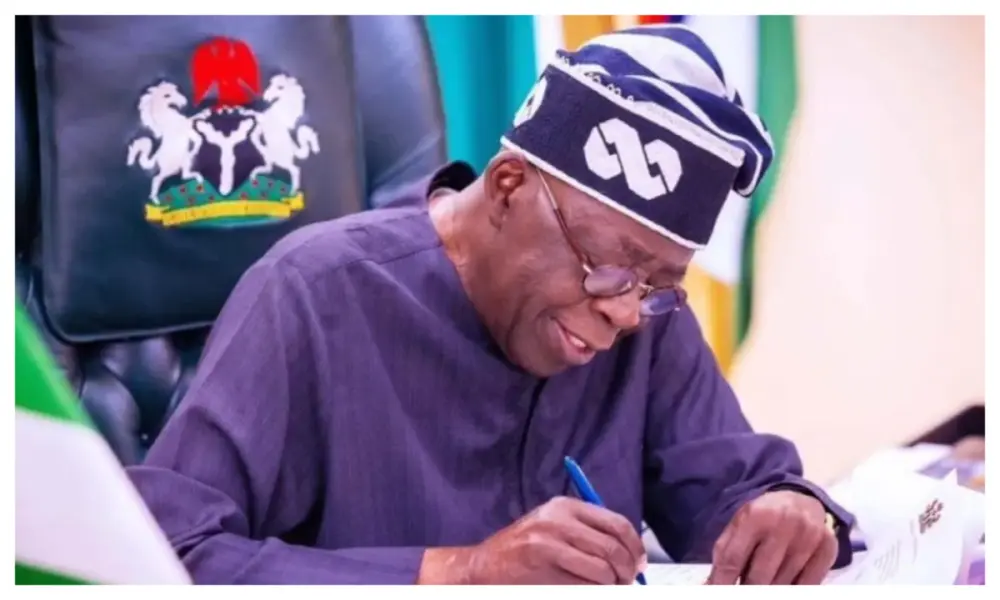
President Bola Tinubu has sacked the Group Chief Executive Officer (CEO) of the Nigerian National Petroleum Company Limited, NNPCL, Mele Kyari.
Tinubu also dissolved its board, removing the Chairman, Chief Pius Akinyelure.
Bayo Onanuga, Special Adviser to the President on information and strategy, announced this in a statement on Wednesday.
Onanuga said Tinubu invoked his powers under section 59(2) of the Petroleum Industry Act (PIA) 2021 to carry out the sweeping reconstitution, citing the need for “enhanced operational efficiency, restored investor confidence, and a more commercially viable NNPC”.
He announced that Tinubu has now approved a new 11-man board, which has Engineer Bashir Bayo Ojulari as the Group CEO and Ahmadu Musa Kida as non-executive chairman.
According to the statement, “Adedapo Segun, who replaced Umaru Isa Ajiya as the chief financial officer last November, has been appointed to the new board by President Tinubu.
“Six board members, non-executive directors, represent the country’s geopolitical zones. They are Bello Rabiu, North West, Yusuf Usman, North East, and Babs Omotowa, a former managing director of the Nigerian Liquified Natural Gas( NLNG), who represents North Central.
“President Tinubu appointed Austin Avuru as a non-executive director from the South-South, David Ige as a Non-executive director from the South West, and Henry Obih as a non-executive director from the South East.
“Mrs Lydia Shehu Jafiya, permanent secretary of the Federal Ministry of Finance, will represent the ministry on the new board, while Aminu Said Ahmed will represent the Ministry of Petroleum Resources”.
He added said that all the appointments are effective today, April 2.

Rhodes-Vivour, Sanwo-Olu clash over Lagos Health Insurance Scheme

DOGE: Elon Musk terminates additional 80 wasteful contracts worth $203.6bn

Nnamdi Kanu detained, prosecuted for making same remark as DSS DG, Ajayi – Ejimakor
Trending

 Trending5 months ago
Trending5 months agoNYA demands release of ‘abducted’ Imo chairman, preaches good governance
- Business5 months ago
US court acquits Air Peace boss, slams Mayfield $4000 fine

 Politics5 months ago
Politics5 months agoMexico’s new president causes concern just weeks before the US elections
- Entertainment5 months ago
Bobrisky transferred from Immigration to FCID, spends night behind bars
- Entertainment5 months ago
Bobrisky falls ill in police custody, rushed to hospital

 Politics5 months ago
Politics5 months agoRussia bans imports of agro-products from Kazakhstan after refusal to join BRICS

 Politics5 months ago
Politics5 months agoPutin invites 20 world leaders
- Politics1 year ago
Nigerian Senate passes Bill seeking the establishment of the South East Development Commission.

